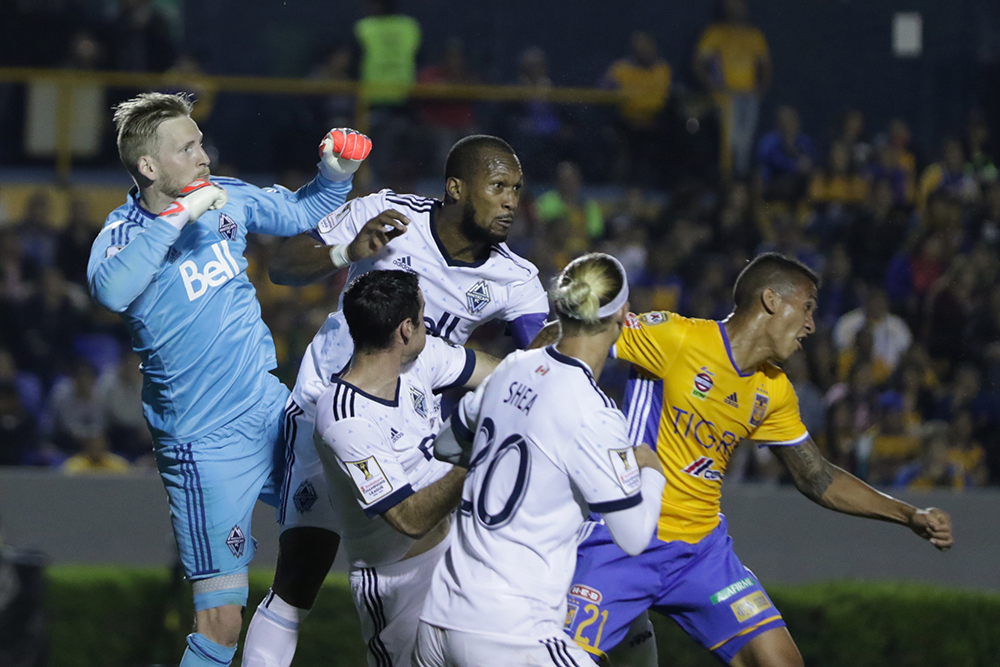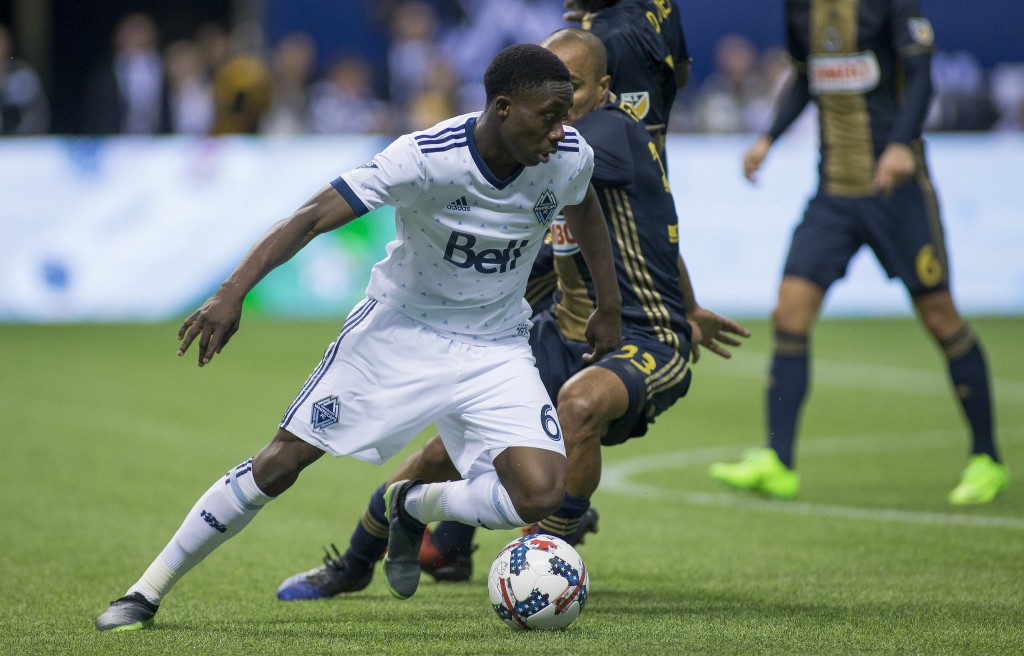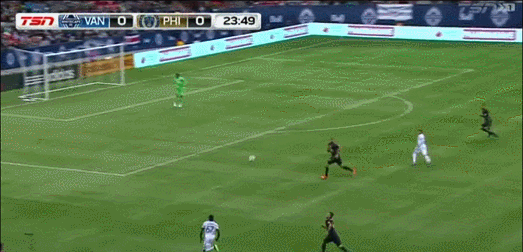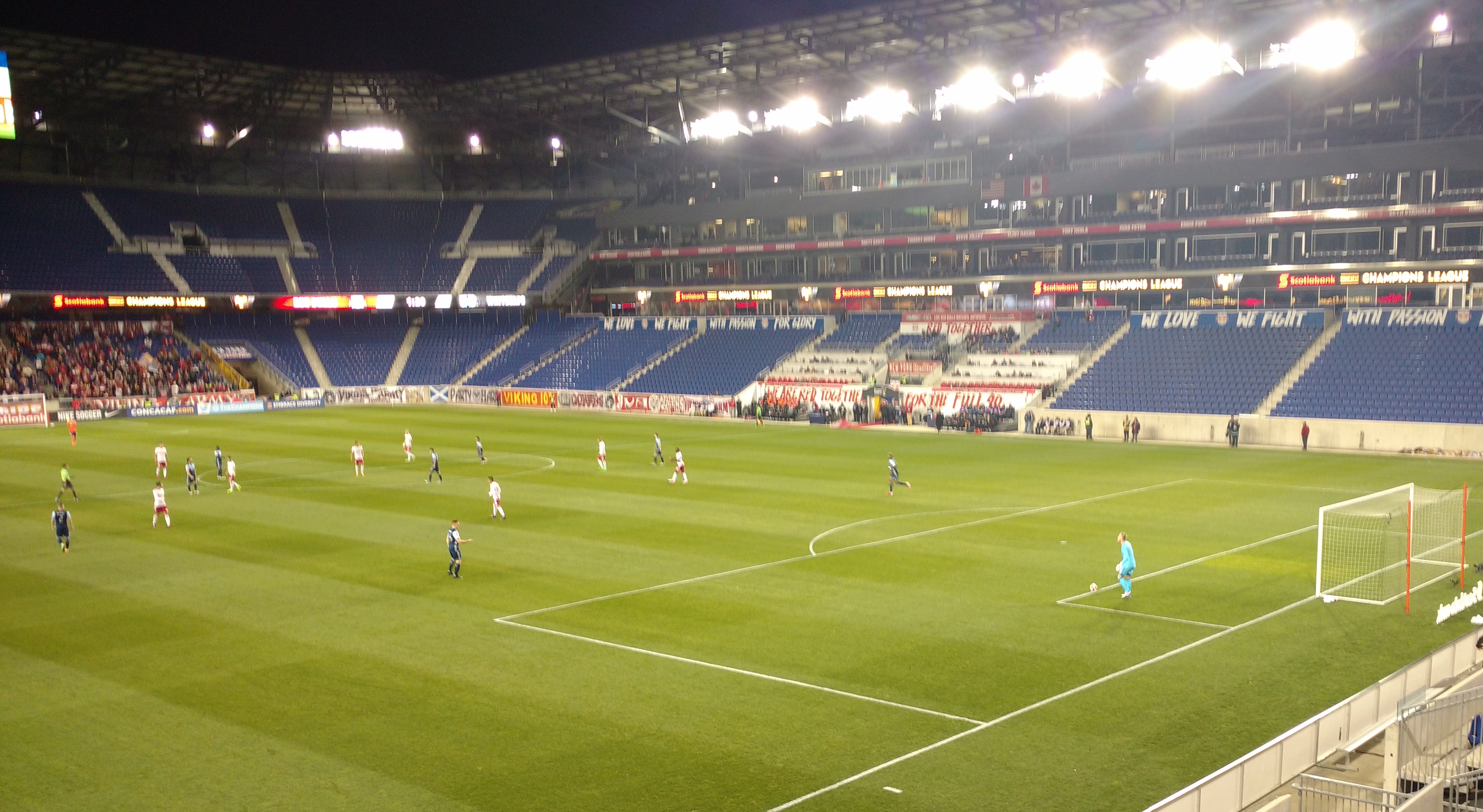The true no-win scenario is something you can’t determine until you’re in the thick of it. This past week, the Whitecaps faced a nearly impossible task: two games in four days, with a flight to Mexico in the middle, the second against last year’s Liga MX Apertura winners.
But even impossible soccer games start at 0-0; certainly both games started brightly. You don’t realize you’re in Star Trek’s Kobayashi Maru test until you’ve already lost it: when wave after wave of attacks hit until you can no longer defend.
It’s the bright start that hurts the most. The first game, Saturday against the San Jose Earthquakes, could have been a footnote, another 0-0 draw that went nowhere. Certainly, that’s what the lineup indicated, with Matias Laba, Brek Shea and Sheanon Williams out of the lineup, held for Mexico. But then Hurtado stunned the Quakes two minutes in, a bit of brilliance out of nothing from a striker the Whitecaps leave isolated too often. Fifteen minutes later, he turned provider for Nico Mezquida, who perfectly shifted the ball from his left to his right to go up 2-0. Great, right? It all feels like it’s going well until David Ousted gets sent off.
The Great Dane faced no good choices on that play, as Kendall Waston and Christian Dean both came up for the same header and missed it, letting the ball lope towards Chris Wondolowski with about 35 yards of space. Instead of waiting for the threat to come, Ousted made the choice to come to meet it, a joust in which he couldn’t manage to avoid a foul. All of a sudden, those daydreams of Monterrey vanish and the Whitecaps were jolted into the present to meet A Big Problem.
Manager Carl Robinson’s decision to remove the goalscorer Mezquida is a choice he told the AP he would have “taken back,” a road chosen poorly as time closed in on him. So was Ousted’s challenge. Little mistakes and errors, cutting off options until there is no mistake: that’s the no-win scenario. The Quakes had 77.8% possession throughout the game, and though the fact that only four of San Jose’s 21 total shots were on target speaks well to the Caps, there’s no substitute for space and time. Nick Lima was able to pull into open space to score the tying goal and Anibal Godoy, sitting off the edge of the box, was on the ball long enough to call his parents before uncorking a stellar looping ball to score the go-ahead. The waves kept coming, and the loss came eventually, stinging all the more because they were two goals up.
That left the second leg of the no-win scenario against Tigres UANL. Flying to Mexico for what may be their highest competitive level of match ever, depending on how you rate the old NASL Cosmos and Rowdies, four days later against a team that didn’t play the previous weekend. That FC Dallas got their April 1 match rescheduled in the same circumstances shows how unenviable a position it is. And Tigres is in mid-season form as the Liga MX Clausura continues; the Whitecaps, on the other hand, still haven’t managed to combine the pieces this year, playing situationally-appropriate lineups based on the availability of players like Kendall Waston, Fredy Montero or Shea. The starting XI had only Ousted and Jordan Harvey in common to the one that started in California.
The CONCACAF Champions League has question marks that surround it, but you want to play teams that are better than you in order to improve, and if you want to win the competitions you are in and play at the highest possible levels, you must stand your head high, even if it means walking into El Volcan with a low chance of joy.
But it started bright enough, which is the pleasant surprise that brought pain later. The Whitecaps were able to stand the atmosphere, and it looked, through half-time, like they might be able to even bring a 0-0 draw home to Vancouver. But they weren’t able to get enough forward, sans one great chance from Mezquida. Again, wave after wave, and not enough bite on the counter; If the penalty for Tigres making a mistake is missing out on an opportunity and the penalty for Vancouver is conceding, you will make that mistake eventually. Waston did, trying to deflect the ball and kicking it into the goal instead. Tigres’ second goal from Eduardo Vargas, another screamer from outside of the box with lots of space and time. It was those last twenty minutes where the inevitability of it all came crashing down on the Whitecaps. 14 shots, with 7 on target, 79.4% possession. The waves kept coming.
The one counter to the admirable sporting philosophy of giving your all regardless of the odds during the season is that there is usually a match next week where you pay for it, and the Whitecaps face Toronto on Saturday without David Ousted and with the weight of a 0-1-1 record on their heads. It’s hard to look back positively on those games because once the whistle sounded, they seemed winnable, but those four days presented an insurmountable task. We have now seen how this team faces the walls closing in. Next time, perhaps they will create their own way out.



